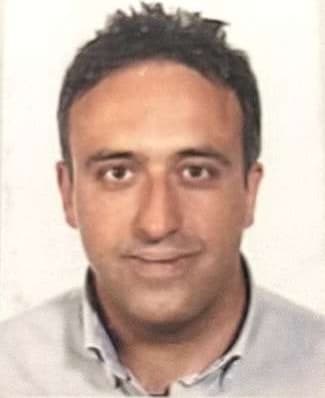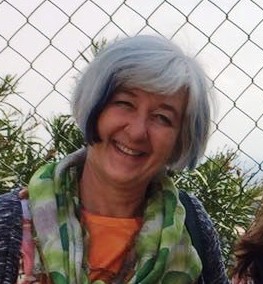Studiare
In questa sezione è possibile reperire le informazioni riguardanti l'organizzazione pratica del corso, lo svolgimento delle attività didattiche, le opportunità formative e i contatti utili durante tutto il percorso di studi, fino al conseguimento del titolo finale.
Calendario accademico
Il calendario accademico riporta le scadenze, gli adempimenti e i periodi rilevanti per la componente studentesca, personale docente e personale dell'Università. Sono inoltre indicate le festività e le chiusure ufficiali dell'Ateneo.
L’anno accademico inizia il 1° ottobre e termina il 30 settembre dell'anno successivo.
Calendario didattico
Il calendario didattico indica i periodi di svolgimento delle attività formative, di sessioni d'esami, di laurea e di chiusura per le festività.
| Periodo | Dal | Al |
|---|---|---|
| I semestre (Lingue e letterature straniere) | 27-set-2021 | 8-gen-2022 |
| II semestre (Lingue e letterature straniere) | 14-feb-2022 | 28-mag-2022 |
Calendario esami
Gli appelli d'esame sono gestiti dalla Unità Operativa Segreteria Corsi di Studio Lingue e letterature straniere.
Per consultazione e iscrizione agli appelli d'esame visita il sistema ESSE3.
Per problemi inerenti allo smarrimento della password di accesso ai servizi on-line si prega di rivolgersi al supporto informatico della Scuola o al servizio recupero credenziali
Docenti
 sara.paolini@univr.it
sara.paolini@univr.it
 daniela.spina@univr.it
daniela.spina@univr.it
Piano Didattico
Il piano didattico è l'elenco degli insegnamenti e delle altre attività formative che devono essere sostenute nel corso della propria carriera universitaria.
Selezionare il piano didattico in base all'anno accademico di iscrizione.
1° Anno
| Insegnamenti | Crediti | TAF | SSD |
|---|
1st foreign language2nd foreign language1st foreign literature 1 LM. Forms, genres and critical approaches2nd foreign literature 1 LM. Forms, genres and critical approaches2° Anno Attivato nell'A.A. 2022/2023
| Insegnamenti | Crediti | TAF | SSD |
|---|
1st foreign literature disciplinary area2nd foreign literature disciplinary area or textual and comparative studies1st or 2nd foreign literature 2 LM. Critical methodologies and textual interpretationA philology to be chosen among the following (philology must be related to one of the chosen languages)History of the 1st or the 2nd foreign language| Insegnamenti | Crediti | TAF | SSD |
|---|
1st foreign language2nd foreign language1st foreign literature 1 LM. Forms, genres and critical approaches2nd foreign literature 1 LM. Forms, genres and critical approaches| Insegnamenti | Crediti | TAF | SSD |
|---|
1st foreign literature disciplinary area2nd foreign literature disciplinary area or textual and comparative studies1st or 2nd foreign literature 2 LM. Critical methodologies and textual interpretationA philology to be chosen among the following (philology must be related to one of the chosen languages)History of the 1st or the 2nd foreign language| Insegnamenti | Crediti | TAF | SSD |
|---|
Legenda | Tipo Attività Formativa (TAF)
TAF (Tipologia Attività Formativa) Tutti gli insegnamenti e le attività sono classificate in diversi tipi di attività formativa, indicati da una lettera.
Comparative literature: history and theory (2021/2022)
Codice insegnamento
4S006121
Docente
Coordinatore
Crediti
9
Lingua di erogazione
Inglese
Settore Scientifico Disciplinare (SSD)
L-FIL-LET/14 - CRITICA LETTERARIA E LETTERATURE COMPARATE
Periodo
II semestre (Lingue e letterature straniere) dal 14-feb-2022 al 28-mag-2022.
Obiettivi formativi
Gli obiettivi formativi del Corso sono volti ad acquisire una conoscenza approfondita del contesto storico, culturale e letterario in relazione al corso impartito. Attraverso una buona padronanza degli strumenti metodologici comparatistici, il corso mira a fornire informazioni utili a commentare, interpretare, contestualizzare, storicizzare testi appartenenti a diversi generi letterari nonché a sviluppare capacità di analisi ermeneutico-critica. Gli strumenti acquisiti si rivolgeranno a temi e topoi di lunga durata e appartenenti a letterature cronologicamente e topograficamente diverse. Al termine dell’insegnamento, lo studente sarà in grado di dimostrare di aver acquisito conoscenze e competenze approfondite e adeguate a perfezionare un giudizio critico (knowledge and understanding); di aver maturato capacità di apprendere e di comprendere, necessarie a sostenere argomentazioni e spunti di riflessione, nonché abilità a eleborare idee personali (learning skills); di saper comunicare informazioni, tematiche nuove e problemi relativamente alla materia impartita (making judgements); infine di aver la capacità di integrare le conoscenze e gestirne la complessità con un alto grado di autonomia in contesti più ampi (o interdisciplinari) (communication skills).
Programma
Il corso si focalizzerà sulla figura dell’antieroe e sulle più recenti proposte critico-teoriche su funzioni e dinamiche dell’empatia negativa (Fusillo, Ercolino) e dell’eroe ibrido (van Tourhout, Salgaro). L’analisi ravvicinata di una selezione di testi e serie tv sarà accompagnata rispettivamente da un’indagine teorica su molteplici concetti nella storia della letteratura (quali personaggio, empatia, emozioni) e da un confronto diretto con le più recenti proposte nello studio della ricezione. Cardine del percorso sarà il contesto dei “reader-response studies”, che pongono al centro dell’analisi la figura del lettore e le sue reazioni emotive nei confronti del testo, utilizzando approcci sperimentali e metodi misti (qualitativi/quantitativi).
TESTI
William Shakespeare, Macbeth (1623)
Jane Austen, Orgoglio e pregiudizio (1813)
Fëdor Dostoevskij, Memorie dal sottosuolo (1864)
Claudio Magris, Un altro mare (1991)
Jonathan Littell, Le benevole (2006)
SERIE TV
Mad men (2007-2015)
Breaking bad (2008-2013)
L’attacco dei giganti (2013-2022)
Fleabag (2016-2019)
MATERIALE CRITICO
1. Eder, Jens, Fotis Jannidis, and Ralf Schneider, eds. 2010. Characters in Fictional Worlds: Understanding Imaginary Beings in Literature, Film, and Other Media. Revisionen. Grundbegriffe Der Literaturtheorie 3. Berlin ; New York: De Gruyter, pp. 3-66.
2. Ercolino, Stefano. 2018. “Negative Empathy: History, Theory, Criticism.” Orbis Litterarum 73 (3): 243–62. https://doi.org/10.1111/oli.12175.
3. Miall, David S. 2018. “Reader-Response Theory.” In A Companion to Literary Theory, edited by David H. Richter, 114–25. Chichester, UK: John Wiley & Sons, Ltd. https://doi.org/10.1002/9781118958933.ch9.
4. Rebora, Simone, Peter Boot, Federico Pianzola, Brigitte Gasser, J Berenike Herrmann, Maria Kraxenberger, Moniek M Kuijpers, et al. 2021. “Digital Humanities and Digital Social Reading.” Digital Scholarship in the Humanities 36 (Supplement_2): ii230–50. https://doi.org/10.1093/llc/fqab020.
5. Salgaro, Massimo, and Benjamin Van Tourhout. 2018. “Why Does Frank Underwood Look at Us? Contemporary Heroes Suggest the Need of a Turn in the Conceptualization of Fictional Empathy.” Journal of Literary Theory 12 (2): 345–68. https://doi.org/10.1515/jlt-2018-0019.
Modalità d'esame
Le modalità didattiche comportano lezioni frontali, da svolgersi in tre giorni settimanali per un complessivo carico di 54 ore (9 CFU). Durante le lezioni, gli studenti saranno incoraggiati a partecipare attivamente, tramite attività di tipo seminariale. Gli studenti non frequentanti dovranno concordare un programma con qualche variazione per facilitare lo studio individuale.
Gli studenti dovranno mostrare, durante un colloquio orale, di aver appreso le capacità critiche che si sono elaborate durante il corso, mostrando un’abilità analitica e argomentativa nel collegare i vari piani teorici e metodologici nell’interpretazione dei testi letterari. Lo studente dovrà altresì esporre con proprietà di linguaggio.
Tipologia di Attività formativa D e F
Nei piani didattici di ciascun Corso di studio è previsto l’obbligo di conseguire un certo numero di CFU di tipologia D e di tipologia F.
CFU D (attività a scelta dello studente)
I CFU D possono essere acquisiti mediante:
- insegnamenti non obbligatori nel proprio piano didattico (previa approvazione del Presidente del Collegio didattico per insegnamenti non selezionabili in autonomia)
- attività accreditate dal Collegio didattico
- competenze linguistiche (diverse o ulteriori) rispetto a quelle obbligatorie
- tirocini o stage
- TALC (competenze trasversali).
Competenze trasversali TALC
Nota bene: i corsi TALC sono riconosciuti solo come CFU D.
Il numero di CFU D va calcolato complessivamente sull’intero triennio/biennio e non è legato all'annualità.
CFU F
I CFU F sono solitamente relativi ad abilità informatiche, competenze linguistiche, stage e tirocini e ulteriori attività formative accreditate in questa tipologia dal Collegio Didattico.
Nel corso di laurea magistrale in Comparative European and Non-European Languages and Literatures sono previste le seguenti tipologie:
- 6 CFU di ulteriori attività formative (competenze linguistiche, abilità informatiche, tirocini, stage).
Le eventuali attività di stage sono finalizzate a far acquisire allo studente una conoscenza diretta in settori di particolare utilità per l’inserimento nel mondo del lavoro e per l’acquisizione di abilità specifiche d’interesse professionale.
Documenti e avvisi
-
 A.A. 2020/2021 Descrizione del percorso di formazione - Regolamento didattico del CdS
(pdf, it, 246 KB, 13/04/21)
A.A. 2020/2021 Descrizione del percorso di formazione - Regolamento didattico del CdS
(pdf, it, 246 KB, 13/04/21)
-
 IL PERCORSO VERSO L’INSEGNAMENTO PER GLI STUDENTI DELL’AREA LINGUE E LETTERATURE STRANIERE
(pdf, it, 93 KB, 13/04/21)
IL PERCORSO VERSO L’INSEGNAMENTO PER GLI STUDENTI DELL’AREA LINGUE E LETTERATURE STRANIERE
(pdf, it, 93 KB, 13/04/21)
Per scoprire tutte le attività didattiche accreditate dal Collegio didattico clicca qui
Prospettive
Avvisi degli insegnamenti e del corso di studio
Per la comunità studentesca
Se sei già iscritta/o a un corso di studio, puoi consultare tutti gli avvisi relativi al tuo corso di studi nella tua area riservata MyUnivr.
In questo portale potrai visualizzare informazioni, risorse e servizi utili che riguardano la tua carriera universitaria (libretto online, gestione della carriera Esse3, corsi e-learning, email istituzionale, modulistica di segreteria, procedure amministrative, ecc.).
Entra in MyUnivr con le tue credenziali GIA: solo così potrai ricevere notifica di tutti gli avvisi dei tuoi docenti e della tua segreteria via mail e a breve anche tramite l'app Univr.
Area riservata studenti
Gestione carriere
Attività accreditate D/F
Calendario didattico dettagliato
Competenze linguistiche (prima e seconda lingua)
Competenze linguistiche in magistrale (terza lingua CFU F)
Compilazione del piano didattico
Corso di Lingua portoghese
Doppio Titolo
Grazie ad una rete di accordi con Atenei esteri, l’Università di Verona offre percorsi formativi internazionali che consentono l’acquisizione di un doppio titolo di studio. L’ammissione ad un CdS a doppio titolo consente di conseguire contemporaneamente, nel tempo di un normale ciclo di studi (di cui una parte viene svolta all'estero), sia il titolo di studio dell’Università di Verona che il titolo rilasciato dall'Ateneo partner, garantendo di vedere riconosciuto il diploma di laurea in entrambi i Paesi.
L'accesso al doppio titolo (così come l’eventuale sostengo finanziario) è regolato da uno specifico bando, e il numero di posti è limitato.
⇒ Per informazioni vedi LINK
Documenti
| Titolo | Info File |
|---|---|
|
|
pdf, it, 316 KB, 28/09/23 |
|
|
octet-stream, it, 22 KB, 28/09/23 |
|
|
pdf, it, 520 KB, 28/09/23 |
Erasmus+ e altre esperienze all'estero
Esercitazioni Linguistiche CLA
Percorso verso l'insegnamento
Una delle possibilità per gli studenti dopo il conseguimento della laurea magistrale è l’insegnamento nella scuola: l’Università degli Studi di Verona è tra gli enti accreditati dal MIUR per l'erogazione di corsi di formazione e aggiornamento e qualificazione delle competenze per insegnanti. Il percorso per diventare insegnante è legato alle seguenti condizioni:
1a CONDIZIONE
Il possesso della laurea magistrale o a ciclo unico, oppure diploma di II livello dell’alta formazione artistica, musicale e coreutica, oppure titolo equipollente o equiparato, coerente con le classi di concorso vigenti alla data di indizione del concorso; il futuro insegnante dovrà, inoltre, soddisfare i requisiti di accesso previsti per la classe di concorso scelta.
Per le classi di concorso:
- A-24 (Lingue e culture straniere negli istituti di istruzione secondaria di II grado) e
- A-25 (Lingua inglese e seconda lingua comunitaria nella scuola secondaria I primo grado)
sono previsti i seguenti requisiti di accesso (vedi l’allegato A al DM 259/2017):
1) 18 CFU nei settori scientifico disciplinari L-LIN/01 e/o L-LIN/02
2) 36 CFU della lingua di specializzazione scelta
3) 24 CFU della letteratura relativa alla lingua di specializzazione scelta.
I requisiti specifici delle classi di concorso A-24 e A-25 possono essere soddisfatti nell’ambito dei piani didattici o negli esami a scelta libera superati all’interno del percorso di studio universitario (Laurea Triennale e Magistrale), oppure attraverso l’iscrizione a corsi singoli.
Il requisito relativo alla lingua di specializzazione (2) è soddisfatto (sulla base degli esami previsti nel piano didattico) nell’ambito del percorso formativo che comprende una laurea triennale dell’area di Lingue e Letterature Straniere, seguita da una laurea magistrale della medesima area (qualsiasi Corso di Laurea triennale e magistrale dell’area di Lingue e Letterature Straniere).
Per verificare i requisiti relativi alla letteratura di specializzazione (3) e agli insegnamenti di linguistica che appartengono ai settori scientifico-disciplinari di L-LIN/01 e L-LIN/02 (1), invece, gli studenti sono invitati a consultare il proprio piano didattico per verificare il numero di CFU previsti nel percorso formativo.
2a CONDIZIONE
Il possesso dei 24 crediti formativi universitari o accademici acquisiti in forma curricolare, aggiuntiva o extra curricolare nelle discipline antropo-psico-pedagogiche e nelle metodologie e tecnologie didattiche, garantendo comunque il possesso di almeno 6 CFU conseguiti in ciascuno di almeno tre dei seguenti quattro ambiti disciplinari:
1) pedagogia;
2) pedagogia speciale e didattica dell’inclusione;
3) psicologia; antropologia;
4) metodologie e tecnologie didattiche.
Percorso formativo 24 CFU
Consente di acquisire uno dei requisiti di partecipazione al concorso nazionale per l’accesso al “percorso annuale di formazione iniziale e prova” su posti comuni e di sostegno, ai sensi del D.Lgs 13 aprile 2017, n. 59 come modificato dalla legge n.145 del 30/12/2018 (c. dal 792 al 796).
I settori scientifico disciplinari, gli obiettivi formativi, le modalità organizzative e gli eventuali costi sono stati stabiliti dal D.M. 10 agosto 2017, n. 616.
Per sapere quali insegnamenti della propria carriera vengano automaticamente riconosciuti si rimanda alla pagina del sito di Ateneo dedicata al percorso formativo 24 CFU.
Si consiglia agli interessati di consultare la pagina https://www.univr.it/it/i-nostri-servizi/futuri-studenti/post-laurea/formazione-degli-insegnanti in costante aggiornamento, in particolare sezione documenti in cui vengono pubblicati formulari, programmi degli insegnamenti ed elenchi di studenti ammessi.
Tra gli insegnamenti automaticamente riconosciuti nell’ambito dei 24 CFU vi sono: Insegnamento delle lingue (L-LIN/02) e Apprendimento delle lingue (L-LIN/02), previsti nel piano didattico del curriculum Linguistico-didattico del CdS di Lingue e letterature straniere (LLS).
Gli studenti immatricolati nel CdS di LLS che hanno scelto i curricula Letterario e Artistico possono comunque inserire tali insegnamenti nel piano di studi come crediti D (a scelta libera).
Gli studenti immatricolati negli altri CdS triennali del Dipartimento di Lingue e letterature straniere (Lingue e culture per il turismo e il commercio internazionale; Lingue e culture per l’editoria [a esaurimento]; Lingue e letterature per l’editoria e i media digitali) posso inserire tali insegnamenti nella propria carriera solo su eventuale autorizzazione preventiva del Presidente del Collegio Didattico (mediante Help desk).
Il soddisfacimento della 1a e 2a condizione è requisito obbligatorio per partecipare ai concorsi di abilitazione o specifici percorsi post lauream previsti dal Ministero.
Prova finale
La prova finale, cui sono attribuiti 21 CFU, deve presentare un approccio originale su un argomento attinente la prima o la seconda lingua scelte dallo studente; la prima o la seconda letteratura; le relative materie d’area; le relative filologie oppure il settore delle letterature comparate. Si tratta di un approfondito lavoro di ricerca che dovrà sfociare in un elaborato in lingua italiana o straniera di almeno ottanta cartelle. Guidato dal relatore, lo studente dimostrerà di saper raccogliere informazioni e materiali bibliografici, di rielaborare e collegare tra loro le letture effettuate, di applicare conoscenze teorico-metodologiche all’analisi dei testi o alle problematiche affrontate. Lo studente potrà chiedere l’assegnazione di un argomento per la tesi dopo aver acquisito almeno 50 CFU del biennio.
Alla prova finale potranno essere attribuiti non più di 11 punti su 110.
Il voto di laurea è formato da:
a) la media aritmetica dei voti conseguiti negli esami, rapportata a 110,
b) la valutazione dell’esame di laurea: un massimo di 11 punti riservati alla tesi magistrale e relativa discussione. Al candidato che abbia ottenuto il massimo dei voti può essere concessa la distinzione della lode, se la Commissione è unanime nel giudicare eccellente la tesi e ottima la discussione in sede di esame. A tesi particolarmente significative può essere riconosciuta anche la dignità di stampa.
c) punti supplementari di incentivazione:
- un massimo di 2 punti per le lodi (1 punto per due lodi, 2 punti per più lodi).
- 2 punti per la partecipazione al Programma Erasmus o assimilato, a condizione che lo studente: abbia acquisito almeno 12 CFU per un semestre di mobilità nel corso del ciclo di studi (24 CFU per due semestri di mobilità) e consegua il titolo finale entro la durata normale del corso di studi.
- 1 punto per la partecipazione al Programma Erasmus o assimilato, a condizione che lo studente: abbia acquisito almeno 12 CFU per un semestre di mobilità nel corso del ciclo di studi (24 CFU per due semestri di mobilità) e consegua il titolo finale anche oltre la durata normale del corso di studi.
Non possono essere attribuiti punti di incentivazione per qualsiasi esperienza all’estero svolta dallo studente su iniziativa privata, anche se riconosciuta come equipollente dal Dipartimento/Collegio Didattico.
Adempimenti amministrativi, scadenze domanda di laurea, calendari delle discussioni di laurea al seguente link Sessioni di laurea
Stage e tirocini
Le attività di stage sono finalizzate a far acquisire allo studente una conoscenza diretta in settori di particolare interesse per l’inserimento nel mondo del lavoro e per l’acquisizione di abilità professionali specifiche.
Le attività di stage sono svolte sotto la diretta responsabilità di un singolo docente presso studi professionali, enti della pubblica amministrazione, aziende accreditate dall’Ateneo veronese.
I crediti maturati in seguito ad attività di stage saranno attribuiti secondo quanto disposto nel dettaglio dal “Regolamento d’Ateneo per il riconoscimento dei crediti maturati negli stage universitari” vigente.
- Tutte le informazioni in merito agli stage per futuri studenti sono disponibili alla pagina Stage e tirocini.
- Tutte le informazioni in merito agli stage per studenti iscritti sono pubblicate in MyUnivr - come fare per - stage e tirocini.
- Tutte le informazioni in merito agli stage per le aziende sono disponili alla pagina Stage e tirocini per azienze.
Ulteriori informazioni al seguente link https://www.univr.it/it/i-nostri-servizi/gestione-carriere-studenti-lingue-e-letterature-straniere/stage-e-tirocini-lingue-e-letterature-straniere

 +39 045802 8409
+39 045802 8409



























